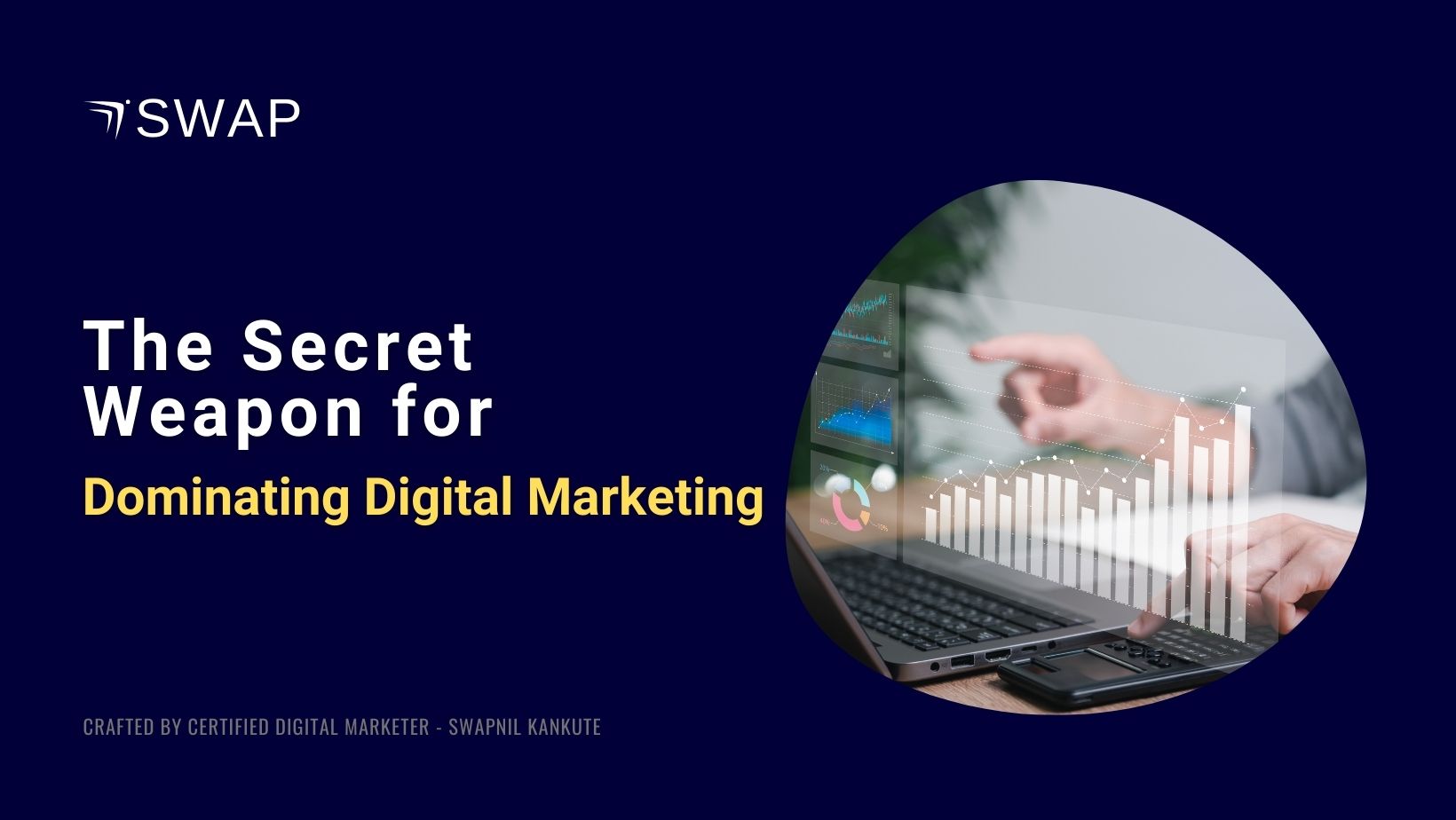Table of Contents
ToggleUnveiling the Secret Weapon
In the fiercely competitive world of digital marketing, businesses are constantly searching for that elusive edge to outshine their rivals. The secret weapon that has emerged as a game-changer is the strategic use of data-driven marketing. This approach harnesses the power of data to make informed decisions, optimize strategies, and achieve unprecedented results.
Understanding Data-Driven Marketing
What is Data-Driven Marketing?
Data-driven marketing is the process of collecting, analyzing, and leveraging data to create more effective marketing strategies. It involves using customer data, market trends, and performance metrics to guide decision-making and tailor marketing efforts. This approach ensures that marketing campaigns are based on concrete insights rather than guesswork.
Importance of Data in Marketing
Data is the lifeblood of modern marketing. It provides valuable insights into customer behavior, preferences, and trends, enabling marketers to understand their audience better. With accurate data, businesses can personalize their marketing messages, improve customer engagement, and enhance overall marketing performance.
Key Components of Data-Driven Marketing
Customer Data Collection
Collecting customer data is the first step in data-driven marketing. This includes information such as demographics, purchase history, online behavior, and social media interactions. Businesses can gather this data through various channels, including websites, email campaigns, social media platforms, and customer surveys.
Data Analysis and Insights
Once data is collected, it must be analyzed to extract meaningful insights. Advanced analytics tools and techniques, such as machine learning and predictive analytics, can help identify patterns, trends, and correlations within the data. These insights enable marketers to make informed decisions and develop more effective marketing strategies.
Personalization and Segmentation
Personalization involves tailoring marketing messages and offers to individual customers based on their preferences and behavior. Segmentation, on the other hand, involves grouping customers with similar characteristics into segments and targeting them with specific campaigns. Both personalization and segmentation are crucial for delivering relevant and engaging marketing experiences.
Implementing Data-Driven Marketing Strategies
Creating Customer Personas
Customer personas are fictional representations of ideal customers based on real data. They help marketers understand their audience better and create more targeted campaigns. Customer personas typically include information such as demographics, interests, pain points, and buying behavior.
Utilizing Marketing Automation
Marketing automation tools enable businesses to streamline and automate repetitive marketing tasks, such as email campaigns, social media posting, and lead nurturing. By using data to trigger automated actions, marketers can deliver personalized messages at the right time, improving efficiency and effectiveness.
A/B Testing and Optimization
A/B testing involves comparing two versions of a marketing asset, such as a webpage or email, to determine which performs better. By testing different elements, such as headlines, images, and calls-to-action, marketers can optimize their campaigns for maximum impact. Data from A/B tests provides valuable insights into what resonates with the audience.
Benefits of Data-Driven Marketing
Enhanced Customer Experience
Data-driven marketing allows businesses to deliver personalized and relevant experiences to their customers. By understanding customer preferences and behavior, marketers can create tailored messages and offers that resonate with their audience, leading to higher engagement and satisfaction.
Improved ROI
By making data-driven decisions, businesses can allocate their marketing budget more effectively and achieve better results. Data-driven marketing strategies are more targeted and efficient, leading to higher conversion rates and improved return on investment (ROI).
Better Decision Making
Data provides marketers with actionable insights and evidence to support their decisions. This reduces the reliance on intuition and guesswork, resulting in more informed and effective marketing strategies. Data-driven decision-making leads to better outcomes and continuous improvement.
Challenges and Solutions
Data Privacy and Security
One of the biggest challenges in data-driven marketing is ensuring data privacy and security. Businesses must comply with regulations, such as GDPR and CCPA, and implement robust security measures to protect customer data. Transparency and consent are crucial for building trust with customers.
Data Integration
Integrating data from various sources can be complex and challenging. Businesses need to ensure that their data is accurate, consistent, and accessible across different systems and platforms. Using data integration tools and techniques can help streamline this process and improve data quality.
Talent and Skills Gap
Implementing data-driven marketing requires specialized skills and expertise. Businesses need to invest in training and hiring professionals with knowledge of data analytics, machine learning, and marketing automation. Partnering with experienced consultants can also help bridge the skills gap.
Future Trends in Data-Driven Marketing
AI and Machine Learning
Artificial Intelligence (AI) and machine learning are set to play a significant role in the future of data-driven marketing. These technologies can analyze vast amounts of data, identify patterns, and make predictions, enabling marketers to deliver more personalized and effective campaigns.
Predictive Analytics
Predictive analytics uses historical data to forecast future trends and behaviors. In data-driven marketing, predictive analytics can help identify potential leads, predict customer churn, and optimize marketing strategies. This enables businesses to stay ahead of market trends and make proactive decisions.
Real-Time Data and Personalization
The future of data-driven marketing lies in real-time data and personalization. Businesses will be able to deliver hyper-personalized experiences to each customer based on real-time data and interactions. This will enhance customer engagement and drive better results.
Conclusion
Summary of Key Points
Data-driven marketing is the secret weapon for dominating digital marketing. By collecting, analyzing, and leveraging data, businesses can create more effective marketing strategies, enhance customer experiences, and achieve better outcomes. Key components of data-driven marketing include customer data collection, data analysis, personalization, and segmentation.
Call to Action for Embracing Data-Driven Marketing
As data-driven marketing continues to evolve, businesses must stay informed about the latest trends and developments. Investing in data analytics, marketing automation, and AI technologies will be crucial for staying competitive in the future. For more insights and resources on data-driven marketing, visit Swapnil Kankute’s Knowledge Center.



